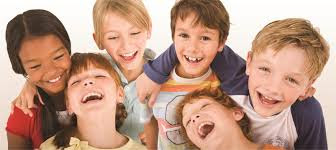Children and Mental Health
Mental health problems affect about one in ten children and young people. They include depression, anxiety and conduct disorder, and are often a direct response to what is happening in their lives. By teaching our children and young people about feelings, how they can effect the body and how to cope with them, can alleviate problems now and in later life.
Please see Our Little Buddies Programme
The emotional well-being of children is just as important as their physical health. Good mental health allows children and young people to develop the resilience to cope with whatever life throws at them and grow into well-rounded, healthy adults.
Things that can help keep children and young people mentally well include:
- being in good physical health, eating a balanced diet and getting regular exercise
- having time and the freedom to play, indoors and outdoors
- being part of a family that gets along well most of the time
- going to a school that looks after the well-being of all its pupils
- taking part in local activities for young people.
Other factors are also important, including:
- feeling loved, trusted, understood, valued and safe
- being interested in life and having opportunities to enjoy themselves being hopeful and optimistic
- being able to learn and having opportunities to succeed
- accepting who they are and recognising what they are good at
- having a sense of belonging in their family, school and community
- feeling they have some control over their own life
- having the strength to cope when something is wrong (resilience) and the ability to solve problems.
Most children grow up mentally healthy, but surveys suggest that more children and young people have problems with their mental health today than 30 years ago. That’s probably because of changes in the way we live now and how that affects the experience of growing up.
Dealing with Change
Mostly things that happen to children don’t lead to mental health problems on their own, but traumatic events can trigger problems for children and young people who are already vulnerable.
Changes often act as triggers: moving home or school or the birth of a new brother or sister, for example. Some children who start school feel excited about making new friends and doing new activities, but there may also be some who feel anxious about entering a new environment.
Teenagers often experience emotional turmoil as their minds and bodies develop. An important part of growing up is working out and accepting who you are. Some young people find it hard to make this transition to adulthood and may experiment with alcohol, drugs or other substances that can affect mental health.
Risk Factors
There are certain ‘risk factors’ that make some children and young people more likely to experience problems than other children, but they don’t necessarily mean difficulties are bound to come up or are even probable.
Some of these factors include:
- having a long-term physical illness
- having a parent who has had mental health problems, problems with alcohol or has been in trouble with the law
- experiencing the death of someone close to them
- having parents who separate or divorce
- having been severely bullied or physically or sexually abused
- living in poverty or being homeless
- experiencing discrimination, perhaps because of their race, sexuality or religion
- acting as a carer for a relative, taking on adult responsibilities
- having long-standing educational difficulties.
How Parents Can Help?
If they have a warm, open relationship with their parents, children will usually feel able to tell them if they are troubled. One of the most important ways parents can help is to listen to them and take their feelings seriously. They may want a hug, they may want you to help them change something or they may want practical help.
Children and young people’s negative feelings usually pass. However, it’s a good idea to get help if your child is distressed for a long time, if their negative feelings are stopping them from getting on with their lives, their distress is disrupting family life or they are repeatedly behaving in ways you would not expect at their age.
Types of mental health problem
These are some of the mental health problems that can affect children and young people. You can find out more from the Mental Health Foundation booklet Whatever Life Brings.
Professional Help
If your child is having problems at school, a teacher, school nurse, school counsellor or educational psychologist may be able to help. Otherwise, go to your GP or speak to a health visitor. These professionals are able to refer a child to further help. Different professionals often work together in Child and Adolescent Mental Health Services (CAMHS)READ MORE
with courtesy Mental Health Ireland



I have bookmarked your blog, the articles are way better than other similar blogs.. thanks for a great blog!
ReplyDeleteHerbal Xanax
Thank You Robert for your kind words, we all work hard on providing relative information.
ReplyDeleteYou there, this is really good post here. Thanks for taking the time to post such valuable information. Quality content is what always gets the visitors coming. mental health
ReplyDeleteI wanted to thank you for this great read!! I definitely enjoying every little bit of it I have you bookmarked to check out new stuff you post.
ReplyDeleteiphysio
Nice to be visiting your blog once more, it has been months for me. www.physiokit.sg
ReplyDeleteYour blog audit would swell up your visitors. I was very pleased to find this site.I wanted to thank you for this great read!! Please visit best site desksta about insagram.
ReplyDelete